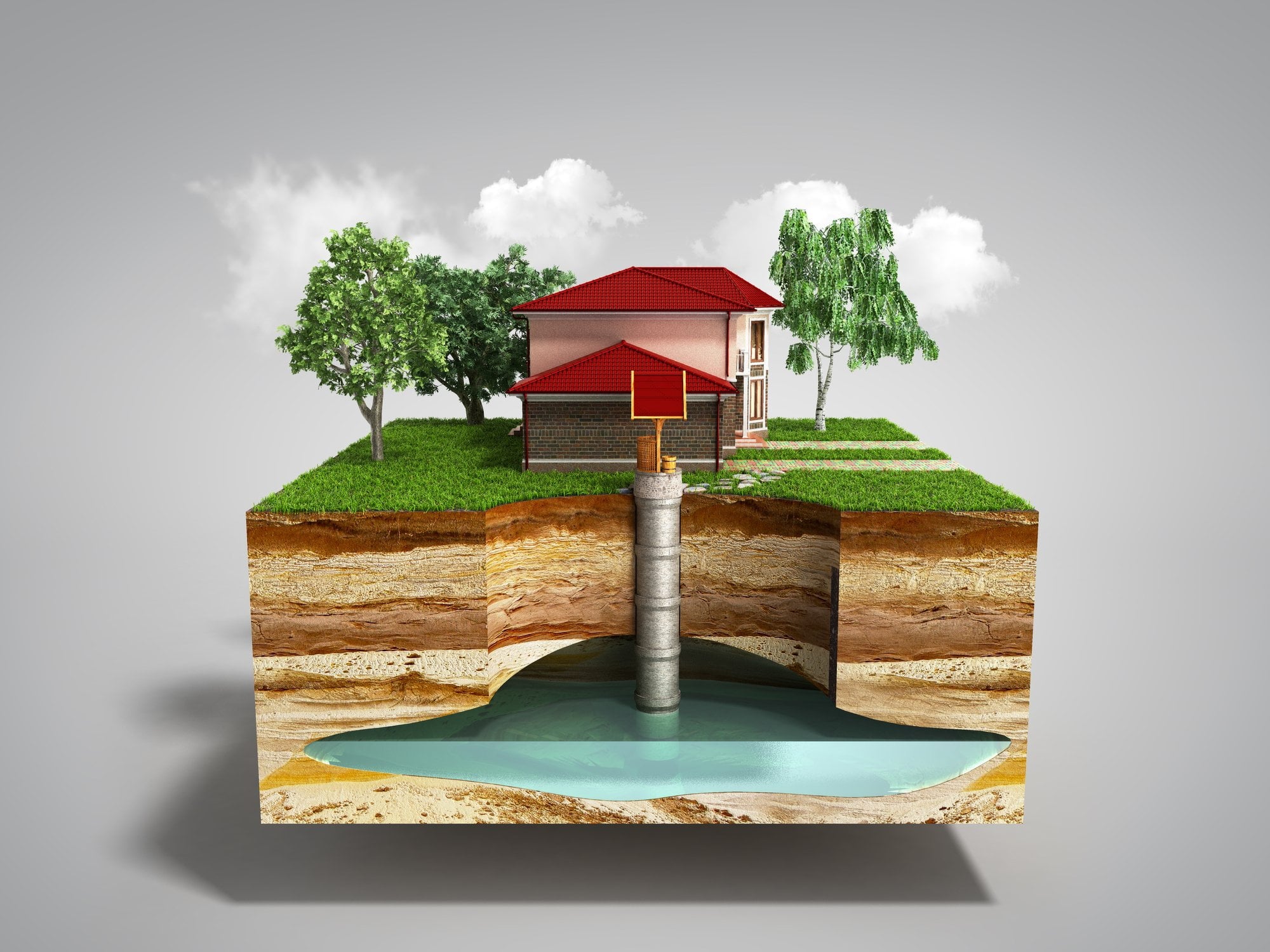
The water within private wells can become contaminated in a variety of ways. Some sources of well water contamination can be observed with the naked eye, while others cannot. Potential well water contamination may occur naturally, or it may be the result of human activity.
Here are some of the most common sources of private well water contamination:
Microorganisms: These are perhaps the most common avenues of well water contamination of all. Parasites, bacteria, viruses, and other microorganisms are often found in well water. Wells that are shallow, meaning the water level is close to ground level, are most at risk. Run off after heavy rains, flooding, or snow melts are another way microorganisms get into well water. Well owners may see the water flowing into the well but will not see the organisms within the water itself.
Heavy Metals: Depending on the geology of your area, heavy metals in your drinking water may pose a risk to your family's health. It is well known that underground rocks and soils may contain lead, arsenic, selenium, cadmium, chromium, and other types of metals that can get into the water.
Nitrate: High levels of nitrate are normally caused by human activity such as locating animal feeding pens or waste areas too close to the well. Septic tanks, fertilizer run off, and other types of sources can also lead to contamination of the well water. Drinking water that has high levels of nitrates can be especially hazardous to young children, pregnant women, and the fetus within the woman.
Fertilizers and Pesticides: These products are necessary for farming in many areas of the country, but when they mix with rain water or water from floods or snow melts, they can run into the well or seep down into well water aquifer. Many types of fertilizers contain nitrogen that can break down into nitrate when combined with oxygen.
Industrial Discharges: Stricter laws regarding the discharge of industrial waste has lowered the potential for well water contamination. But the laws are not always obeyed and industrial waste can and does still get into underground water sources. This can be especially true for those who live in areas where manufacturing plants are abundant.
Leaking or Abandoned Underground Tanks: Storage tanks that were placed underground may leak into the surrounding area. Depending on what was being stored, this, too, can present problems with well water contamination. Most onerous are old gasoline and diesel storage tanks located at abandoned gas stations. Over time, these tanks will leak. Above ground storage tanks, such as those found on many farms, can also leak and cause contamination of well water.
Private well owners know that there is no way they can foresee and plan for every single event that may contaminate their drinking water. This is where installing high-quality in-home water filters can become crucial to good health. Water filters can be installed that clean all of the water that enters the home or they can be installed only at the point of use—faucets and shower heads.
If you are not sure what type of water filter will best serve your needs, contact a reliable vendor and discuss your concerns. They can offer a wide variety of solutions, meeting virtually any budget.


Share:
What is The Safe Drinking Water Act?
What is Hard Water?